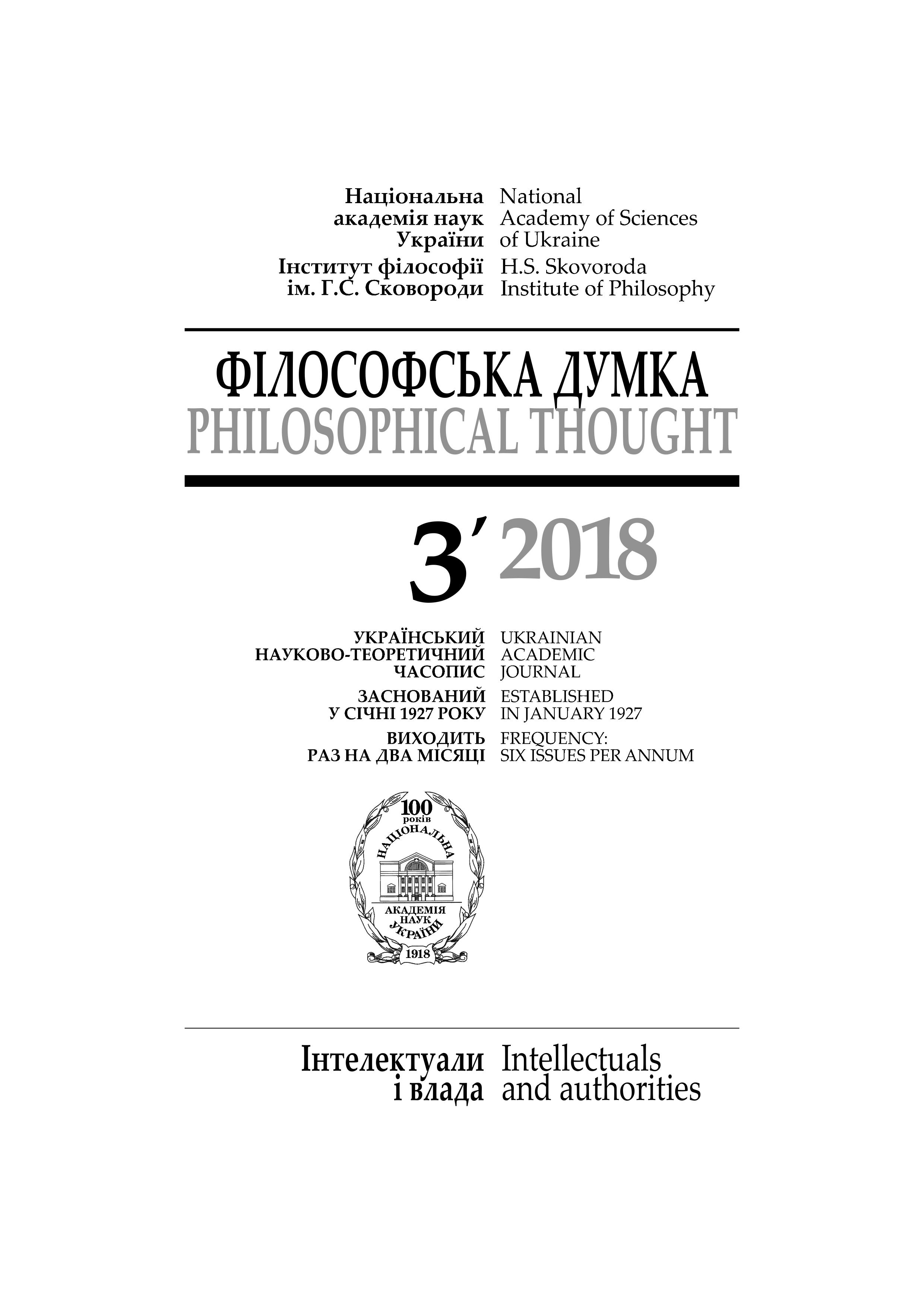Modern tendencies of development of English-language hermeneutic tradition
MODERN HUMANITARISTICS
Keywords:
hermeneutics, interpretation, critical hermeneutics, metaphysics, hermeneutical circleAbstract
The article is dedicated to the modern tendencies in English-language hermeneutical the-ory. There were defined some special traits of that theory and differences between that one and German tradition. Practical orientation, pragmatism, antimetaphysical orientations are among those traits. Also, there were investigated such phenomenon, as hermeneutic is coming out of traditional borders of philosophy and going to the domain of practical sci-ences. As like system analyses, medicine, design. One of the main problems of such outgo-ing is that researches in non-philosophical sciences are not so familiar with the concep-tions of M. Heidegger, H-G. Gadamer. For example, they are developing the hermeneuti-cal circle without understanding it clearly.Brief review of existing hermeneutical conceptions was done on the purpose of pos-sibility of developing hermeneutics to practical sciences. There were highlighted three directions of hermeneutical thought: hermeneutical theory, hermeneutical philosophy and critical hermeneutics. With the assistance of works written by J. Bleicher and E. Hirsch, it was determined that critical theory has a huge potential in practical sciences. The benefits of that theory are lightness in perception and ethical orientation.
References
Bleicher, J. (1980). Contemporary Hermeneutics: Hermeneutics as Method, Philosophy and Critique. London: Routledge and Kegan Paul.
Вutler, T. (1998). Towards a hermeneutic method for interpretive research in information sys-tems. In: Journal of Information Technology, 13, 285–300.
Gadamer, H.-G. (2007). Hermeneutics as practical philosophy. The Gadamer Reader: A Bou-quet of the Later Writings (Nov. 21). Northwestern University Press.
Gadamer, H-G. (2006). Truth and Method. London: Continium.
Gadamer, H-G. (1990). Wahrheit und Methode. T bingen: Mohr Ziebeck.
Hirsch, E.D. Jr. (1972). Three Dimensions of Hermeneutics. In: New Literary History, 3 (2), 245–261. https://doi.org/10.2307/468314
Mantzavinos, C. (s.a.). Hermeneutics. In: The Stanford Encyclopedia of Phylosophy/ Retrieved from: https://plato.stanford.edu/archives/win2016/entries/hermeneutics.
Mootz Fr.J. (1994). The New Legal Hermeneutics. In: McGeorge School of Law Scholarly Articles, Retrieved from; http://scholarlycommons.pacific.edu/facultyarticles/254.
Paterson, M., Higgs, J. (2005). Using Hermeneutics as a Qualitative Research Approach in Professional Practice. In: The Qualitative Report, 10, (2), 339–357.
Downloads
-
PDF (Українська)
Downloads: 239
Published
How to Cite
Issue
Section
License
Authors who publish with this journal agree to the following terms:
- Authors retain copyright and grant the journal right of first publication.
- Authors are able to enter into separate, additional contractual arrangements for the non-exclusive distribution of the journal's published version of the work (e.g., post it to an institutional repository or publish it in a book), with an acknowledgement of its initial publication in this journal.
- Authors are permitted and encouraged to post their work online (e.g., in institutional repositories or on their website) prior to and during the submission process, as it can lead to productive exchanges, as well as earlier and greater citation of published work (See The Effect of Open Access).


